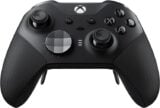Valve’s next Index VR headset will reportedly be a standalone unit
Datamine suggests the next device, codenamed Deckard, may not need a PC to run

A dataminer has discovered information that may suggest that the successor to the Valve Index will be a standalone unit.
YouTuber Brad Lynch has posted a video explaining how he believes the device, which a driver file appears to refer to by the codename “Deckard”, will be able to be used on its own without connecting it to a PC, similar to the Oculus Quest.
A folder called VRLink includes a DLL file which contains “an entire library of stuff related to a Wi-Fi driver or device”, according to Lynch. After looking up the model, Lynch discovered that it’s a Wi-Fi 5 (Wireless-AC) device, although the DLL also contains reference to a Wi-Fi 6 connection.
Lynch points out that this device usually has two antennas, and mentions that earlier this year Valve patented a number of different headstrap designs. “In a lot of these designs they talk about the idea of incorporating two antennas – one in the front and one in the back – for standalone use to connect wirelessly to a PC,” he explains.
Lynch also notes out that a hidden Valve Internal menu has recently added an option called Standalone System Layer, noting: “From what I understand, this is exactly what it says. It’s a layer for a standalone headset to use, to do standalone stuff.”
According to Lynch, the final piece of evidence suggesting a standalone device is a reference to a deckard_applications.vrmanifest file “accidentally left in a Linux ARM binary”.
After studying other driver files, Lynch came to the conclusion that this file “is actually a brand new feature” which, “when implementing with the Deckard, will allow Deckard to boot up and go into some default applications to do things such as room setup, or something like xrdesktop”.
Xrdesktop is an application by Collabora, which Lynch says has been “funded heavily by Valve to build a bunch of cool VR stuff” and lets players access their PC’s desktop from VR.
If Lynch’s findings turn out to be accurate and Deckard is indeed the successor to the Valve Index, it isn’t yet clear if it will be able to completely run VR games on its own, or whether it will require to connect to a PC (albeit wirelessly using the Wi-Fi antennas mentioned in the patent) and use its processing power to render and then stream games to the headset.
The original Valve Index headset was released in June 2019 and sold for $999. When Valve announced Half-Life: Alyx at the end of that year, demand for the headset increased instantly, leading to it selling out in January 2020. The subsequent COVID-19 pandemic also meant new stock took a number of months to arrive.
Valve is currently preparing to release the Steam Deck, a handheld device described as “a powerful all-in-one portable PC” capable of running the latest AAA games.
Steam Deck runs the latest version of Valve’s SteamOS software – which is based on Linux – allowing players to easily access their Steam games library and all of the platform’s features.
However, Valve insists that Steam Deck is also an open PC with the ability to install any software or connect with any hardware. That means players could be able to access other company’s game stores such as The Microsoft Store and Xbox Game Pass.













